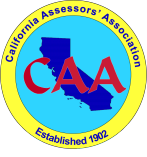
News and Info
This site is updated at least annually.
Forms for use in 2027 will be available starting January 1st, 2027.
Site Info
Cal Assessor e-Forms!
This is a California Counties and BOE website. The
Only property tax related forms are available at this site. No individual data or information is maintained at this site or can be accessed through this site.
Contact Us
You can contact your County Assessor by using the counties link. The Assessor in the county where the property is located can provide the best and specific assistance.

- Copyright © 2026 e-Forms Network Group and California Assessors' Association (CAA)